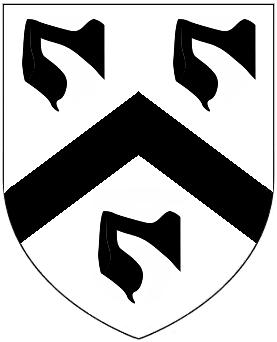Related Research Articles

The Protectorate, officially the Commonwealth of England, Scotland and Ireland, is the period from 16 December 1653 to 25 May 1659 during which England, Wales, Scotland, Ireland and associated territories were joined together in the Commonwealth of England, governed by a Lord Protector. It began when Barebone's Parliament was dismissed, and the Instrument of Government appointed Oliver Cromwell Lord Protector of the Commonwealth. Cromwell died in September 1658 and was succeeded by his son Richard Cromwell.

John Lambert was an English Parliamentarian general and politician. Widely regarded as one of the most talented soldiers of the period, he fought throughout the Wars of the Three Kingdoms, and was largely responsible for victory in the 1650 to 1651 Scottish campaign.

The Rump Parliament was the English Parliament after Colonel Thomas Pride commanded soldiers to purge the Long Parliament, on 6 December 1648, of those members hostile to the Grandees' intention to try King Charles I for high treason.
John Wilde was an English lawyer and politician. As a serjeant-at-law he was referred to as Serjeant Wilde before he was appointed judge. He was a judge, chief baron of the exchequer, and member of the Council of State of the Commonwealth period.

George Fleetwood (1623–1672) was an English major-general and one of the regicides of King Charles I of England.
Anthony Stapley was one of the regicides of King Charles I of England.
Edward Dendy was a regicide who helped to facilitate the trial of Charles I.
John Clarke, also known as John Clark, John Clerk, and John Clerke, was an English politician and Justice of the Peace who sat in the House of Commons from 1653 through 1660, and was a colonel in the Parliamentary army between 1651 and 1659.
Sir Hugh Bethell was an English politician who sat in the House of Commons at various times between 1654 and 1679.

Bussy Mansell was a Welsh politician who sat in the House of Commons at various times between 1653 and 1699. He was a zealous Parliamentarian during the English Civil War.
John Williams was a Welsh politician who sat in the House of Commons in 1653.
Richard Price was a Welsh politician who sat in the House of Commons in 1653. He fought in the Parliamentary army in the English Civil War.

Sir John Carter was an English soldier, politician and administrator from Buckinghamshire, who served in the Parliamentarian army during the Wars of the Three Kingdoms. He settled in Denbighshire and was a Member of Parliament at various times between 1654 and 1660.
Rowland Dawkins was a Welsh military colonel and politician who sat in the House of Commons at various times between 1654 and 1656. He was a zealous supporter of the Commonwealth.
John James was an English politician who sat in the House of Commons in 1653. He served in the Parliamentary army in the English Civil War.
William Draper (1620-1672) was an English politician who sat in the House of Commons in 1653. He was an active supporter of Parliament during the Commonwealth.
John Parker was an English judge and an MP for Rochester during the Interregnum.
References
- ↑ Also spelt Hugh Courtney
- ↑ Foster, Joseph, ed. (1891), "Colericke-Coverley", Alumni Oxonienses, 1500–1714, pp. 304–337, retrieved 4 May 2011
- 1 2 3 4 5 William, William Retlaw (1895), The Parliamentary History of the Principality of Wales
- ↑ Willis, Browne (1750). Notitia Parliamentaria, Part II: A Series or Lists of the Representatives in the several Parliaments held from the Reformation 1541, to the Restoration 1660 ... London. pp. 229–239.